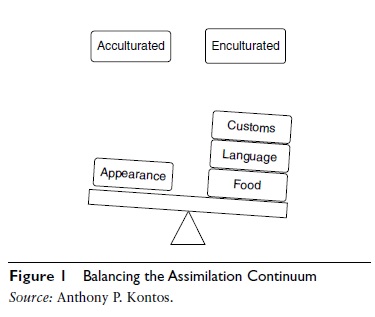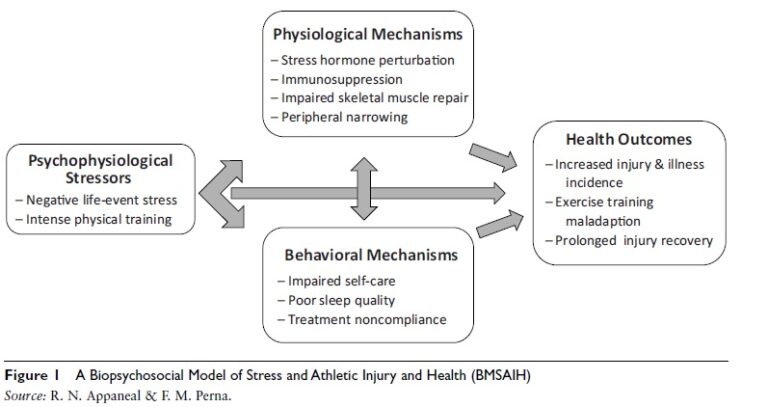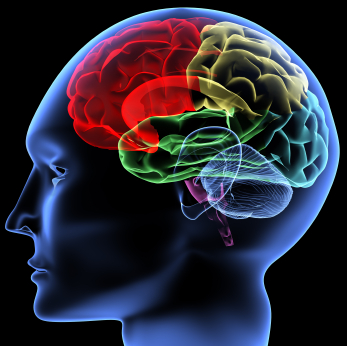Diabetes Education and Behavioral Change
This article explores the vital intersection of diabetes education and behavioral change within the realm of health psychology. Beginning with...
Read More
Attribution Theory in Sport
Attributions are explanations about why particular performances or behaviors have occurred. When faced with important, negative, novel, or unexpected events, ...
Read More
Emotional Aspects of Living with Diabetes
This article explores the intricate emotional landscape of individuals living with diabetes within the framework of health psychology. The introduction...
Read More
Automaticity in Sport
Automaticity is the ability to execute a skill using no (or very few) information processing resources: attention and working memory....
Read More
Cross-Cultural Training
Participation in a formal cross-cultural training program will prepare people for a successful sojourn in another country. Given the number...
Read More
Psychosocial Interventions for Diabetes Control
This article explores the pivotal role of psychosocial interventions in diabetes control within the framework of health psychology. The introduction...
Read More
Automaticity: Evaluative Priming
Priming effects occur when the processing of a target stimulus is influenced by a preceding stimulus on the basis of ...
Read More
Collectivistic Cultures
Collectivistic Cultures Definition Social psychology researchers tend to think about cultures as shared meaning systems that provide the knowledge people...
Read More
Family Support in Diabetes Care
This article explores the pivotal role of family support in diabetes care within the framework of health psychology. Beginning with...
Read More
Automaticity: Implicit Attitudes
Implicit attitudes, also referred to as automatic evaluations, are immediate and spontaneous evaluations of objects, groups, or behaviors as being...
Read More
Cultural Animal
Cultural Animal Definition Cultural animal is a term used to refer to human beings. The core idea is that human...
Read More
Stress and Glycemic Control in Diabetes
This article delves into the intricate interplay between stress and glycemic control in individuals with diabetes, within the framework of...
Read More
Autonomy-Supportive Coaching
Motivation is one of the foundations of successful sport performance, and coaches play a critical role in developing or undermining...
Read More
Cultural Differences
Cultural Differences Definition Cultural groups can differ widely in their beliefs about what is true, good, and efficient. The study...
Read More
Coping with Diabetes-Related Complications
This health psychology article explores effective coping strategies for individuals facing diabetes-related complications, emphasizing the importance of addressing both the...
Read More
Autonomic Nervous System
The central nervous system (CNS) is composed of the brain and spinal cord. The CNS receives sensory information from the ...
Read More
Cultural Disintegration
The term culture has been variously defined, but there is general agreement that, whatever the concept entails, it serves as...
Read More
Diabetes and Adolescent Mental Health
This article explores the intricate relationship between diabetes and adolescent mental health within the realm of health psychology. The introduction...
Read More
Attentional Focus
The effect of an individual’s focus of attention on motor performance and learning has long intrigued both researchers and practitioners....
Read More
Cultural Diversity
Cultural diversity is a central feature of community psychology. It derives from a general psychological focus on the naturally occurring...
Read More
Lifestyle Interventions for Diabetes Prevention
This article explores the pivotal role of lifestyle interventions in the prevention of diabetes, addressing the escalating global prevalence of...
Read More
Attachment Theory And Coaching
The aim of attachment theory has largely been to explain how relationships with parents in childhood have such a persistent ...
Read More
Cultural Foundations of Behavior
Marshall McLuhan is quoted as saying that ‘‘It’s a cinch fish didn’t discover water.” Just as clearly, psychologists didn‘t discover...
Read More
Psychological Screening in Diabetes Care
This article delves into the pivotal role of psychological screening in diabetes care within the framework of health psychology. The...
Read More
Assimilation in Sport
Assimilation refers to the integration of one culture into another. This integration may include changes in cultural characteristics such as ...
Read More
Cultural Pluralism
Cultural pluralism is a form of cultural diversity in certain countries where cultures can still maintain their unique qualities and...
Read More
Psychological Benefits of Health Disclosure
This article explores the psychological benefits of health disclosure within the realm of health psychology, shedding light on the multifaceted...
Read More
Anticipation in Sport
In sport and exercise psychology, anticipation usually refers to the ability to quickly and accurately predict the outcome of an...
Read More
Culture and Development
Human development takes place in the interaction of a child and the culture in which he or she matures. Culture...
Read More
Disclosure Decisions in Chronic Illness
This article explores the intricate dynamics of disclosure decisions within the context of chronic illness, shedding light on the multifaceted...
Read More
Neurofeedback in Sport
In recent years, there has been an increase in research and practical applications concerning the use of biofeedback training for...
Read More
Culture and Mental Health
The study of culture and mental health is concerned with understanding the relationships of cultural factors to the etiology, assessment,...
Read More
Therapeutic Disclosure in Mental Health
This article delves into the multifaceted domain of therapeutic disclosure in mental health within the framework of health psychology. The...
Read More
Biopsychosocial Model Of Injury
There are several prevailing models that connect psychological factors and sport injury, each with slightly different perspective on relevant biological, ...
Read More
Culture of Honor
Culture of Honor Definition A culture of honor is a culture in which a person (usually a man) feels obliged...
Read More
Social Support and Disclosure Outcomes
This article delves into the intricate relationship between social support and disclosure outcomes within the realm of health psychology. The...
Read More
Body Awareness
Body awareness is described as awareness of, and attentiveness to, one’s internal bodily processes and sensations. It is a sensitivity...
Read More
Culture Shock
Some of the earliest records of human culture describe people traveling to foreign lands for trade or conquest. Today people...
Read More
Stigma and Disclosure in Health Conditions
This article explores the intricate dynamics of stigma and disclosure within the realm of health conditions, anchoring its discourse in...
Read More
Body Dissatisfaction
Body dissatisfaction is the negative subjective evaluation of one’s body as it relates to body size, shape, muscularity or muscle ...
Read More
Culture-Bound Disorders
Psychological disorders considered specific to particular ethnocultural groups because of distinct cultural factors influencing the etiology, meaning, expression, and for...
Read More
Disclosure in Patient-Provider Communication
This article explores the pivotal role of disclosure in patient-provider communication within the realm of health psychology. Beginning with an...
Read More
Body Dysmorphic Disorder and Muscle Dysmorphia
Most people would like to change something about their physical appearance, and this normative discontent is not usually indicative of...
Read More
Erotic Plasticity
Erotic Plasticity Definition Erotic plasticity refers to the degree to which the sex drive is shaped by social, cultural, and...
Read More
Brain in Sport
Neural plasticity is the mechanism by which the brain encodes experience and learns new skills, behaviors, and habits in daily...
Read More
Confidentiality and Disclosure Ethics
The article delves into the crucial realm of confidentiality and disclosure ethics within the domain of health psychology, investigating its...
Read More
Action Theory
Action theory represents a general model of work-related cognition and behavior with implications for a wide range of topics in...
Read More
Brain Imaging
Neuroimaging includes various techniques that either directly or indirectly image the structure and the function of the human brain. Thus,...
Read More
Health Disclosure in the Digital Age
In the era of the digital age, the landscape of health disclosure has undergone a profound transformation, shaping the dynamics...
Read More
Empowerment
Today, more than 70% of organizations have adopted some kind of empowerment initiative for at least part of their workforce....
Read More















